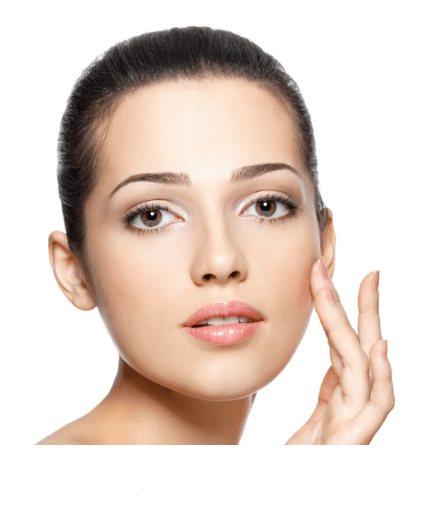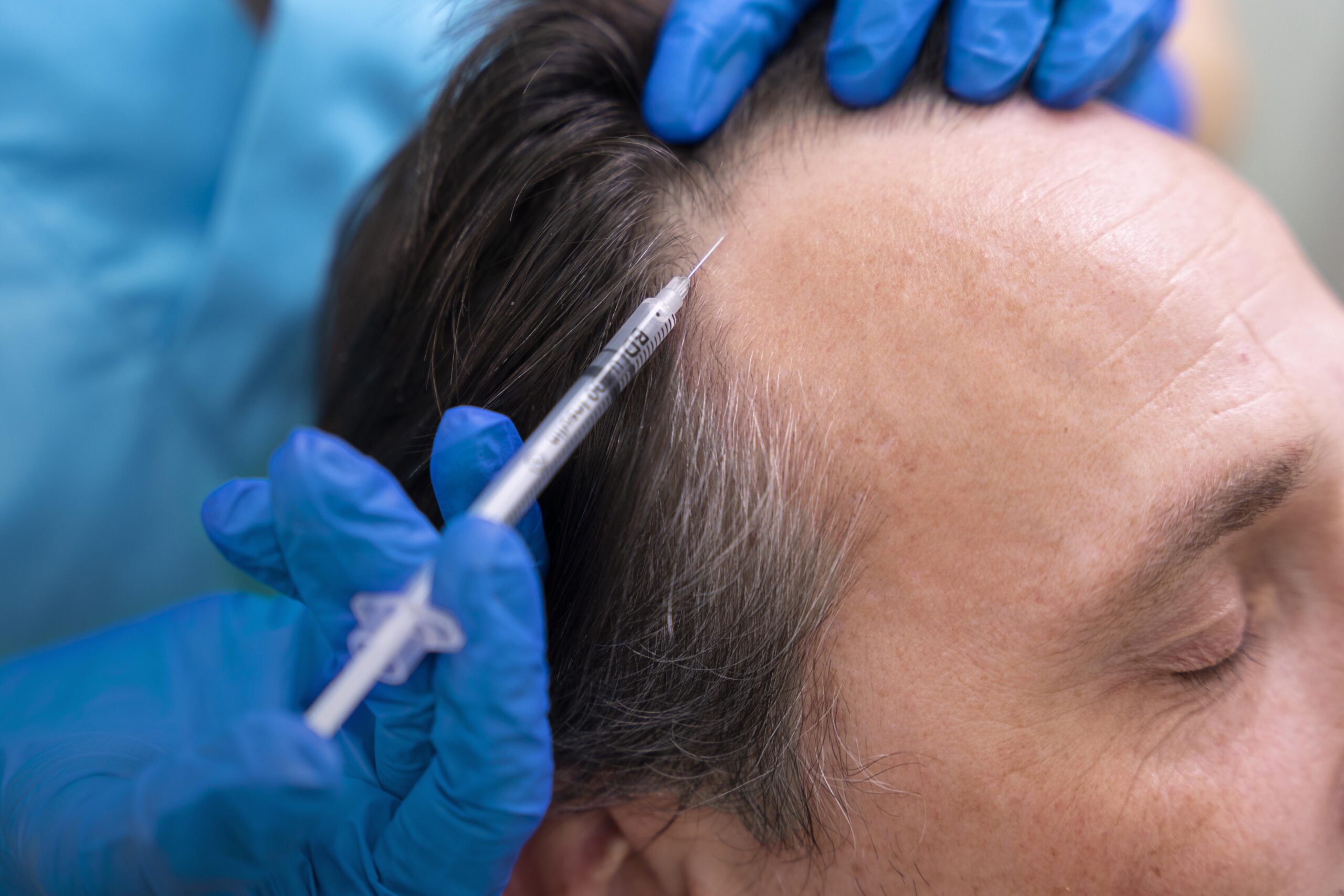Hair thinning is a common concern for both men and women, impacting confidence and self-esteem. As we age, hair loss and thinning can be caused by various factors, including genetics, hormonal imbalances, stress, poor nutrition, and even environmental influences. While there are numerous hair growth treatments available, one emerging solution that’s gained significant attention in recent years is Mesotherapy.
In this blog, we will explore how Mesotherapy for hair works, its benefits, potential side effects, and whether it can truly reverse hair thinning in 2025.
What is Mesotherapy for Hair?
Mesotherapy is a non-surgical treatment that involves injecting a cocktail of vitamins, minerals, amino acids, and other bioactive substances directly into the scalp. This cocktail is designed to nourish the hair follicles and improve circulation in the scalp, promoting healthier hair growth.
The goal of Mesotherapy for hair is to target the underlying causes of hair thinning and promote the regeneration of hair follicles. This treatment has become a popular option for people dealing with hair loss, offering a minimally invasive solution with relatively quick recovery times.
How Does Mesotherapy for Hair Work?
Mesotherapy is based on the concept of delivering active ingredients directly to the target area, in this case, the scalp, where they can be absorbed more efficiently than if applied topically. During a Mesotherapy treatment for hair, a series of microinjections are made into the dermal layer of the scalp, just above the hair follicles.
The Mesotherapy solution typically contains a combination of:
Vitamins (like Biotin and Vitamin B5): Essential for hair health and growth.
Minerals (such as Zinc and Magnesium): Vital for promoting scalp health.
Amino Acids (like L-Carnitine): Promote cell regeneration and strengthen hair follicles.
Plant Extracts and Growth Factors: Help improve scalp circulation and stimulate dormant hair follicles.
These ingredients are aimed at addressing the root causes of hair thinning by nourishing the follicles, improving blood circulation to the scalp, and encouraging healthier hair growth.
What Causes Hair Thinning?
Hair thinning can be caused by a variety of factors, including:
Genetics (Androgenic Alopecia): The most common cause of hair thinning, particularly in men, is a genetic predisposition to hair loss, often referred to as male or female pattern baldness.
Hormonal Imbalances: Conditions such as polycystic ovary syndrome (PCOS) or thyroid problems can disrupt hormonal balance, leading to hair thinning.
Nutritional Deficiencies: Lack of essential vitamins and minerals like iron, biotin, and zinc can negatively impact hair growth.
Stress: Chronic stress can lead to a condition known as telogen effluvium, where hair enters the resting phase prematurely, leading to thinning.
Environmental Factors: Pollution, harsh hair products, and even weather conditions can contribute to weak, thinning hair.
Understanding the causes behind hair thinning is crucial to determining whether Mesotherapy for hair is the right treatment. While Mesotherapy can address some of these factors, it may not be effective in cases of genetic hair loss or more severe conditions without combining other treatments.
The Benefits of Mesotherapy for Hair
There are several key benefits to Mesotherapy for hair restoration, especially for individuals experiencing mild to moderate hair thinning:
Stimulates Hair Growth: Mesotherapy helps stimulate dormant hair follicles by improving blood circulation to the scalp, which can encourage hair growth.
Improves Scalp Health: The vitamins and nutrients in the mesotherapy solution promote healthier skin on the scalp, addressing dryness or inflammation that could be hindering hair growth.
Non-Surgical Solution: Unlike hair transplant surgeries or other invasive treatments, Mesotherapy is a non-surgical option with minimal downtime, making it a popular choice for people seeking a quick and less intrusive treatment.
Customizable Treatment: The treatment can be tailored to individual needs. Depending on the client’s hair condition, different cocktails of nutrients can be used to address specific causes of hair thinning, such as vitamin deficiencies, poor circulation, or hormone imbalance.
No Downtime: Mesotherapy requires no recovery period. While there might be some redness or mild swelling in the treated area, patients can generally return to their normal activities immediately after the procedure.
Boosts Hair Strength and Texture: Beyond stimulating hair growth, the nutrients provided in Mesotherapy can improve the strength, texture, and overall quality of existing hair.
Does Mesotherapy Really Reverse Hair Thinning in 2025?
Mesotherapy for hair shows promise, but it’s important to have realistic expectations when it comes to the treatment’s effectiveness. While Mesotherapy can support hair growth by nourishing the scalp and improving circulation, it’s not a magical solution that will instantly reverse significant hair loss or thinning.
Early-stage hair thinning: Mesotherapy tends to be most effective when used during the early stages of hair thinning. Individuals who still have active hair follicles will benefit the most from the nutritional injections.
Genetic hair loss (Androgenic Alopecia): In cases where hair thinning is primarily genetic, such as male or female pattern baldness, Mesotherapy might not stop hair loss altogether. However, it can slow down the process and may help improve hair thickness and quality.
Combined Treatments: For best results, Mesotherapy is often used alongside other hair restoration treatments, such as PRP (Platelet-Rich Plasma) therapy or topical hair growth treatments like minoxidil. Combining treatments can maximize hair growth and improve overall results.
In 2025, with advancements in Mesotherapy techniques and the availability of more personalized treatment plans, it may become an even more effective option for reversing hair thinning. As with any hair loss treatment, individual results vary, and it’s important to consult with a healthcare provider to determine if Mesotherapy is right for you.
What Are the Risks and Side Effects of Mesotherapy for Hair?
While Mesotherapy for hair is generally considered safe when performed by a trained professional, there are potential risks and side effects to be aware of:
Pain or Discomfort: While the procedure is minimally invasive, some people experience mild pain or discomfort during the injections.
Swelling or Redness: Temporary swelling or redness at the injection sites is common, but it usually subsides within a few hours.
Infection: As with any procedure that involves injections, there’s a small risk of infection. This is why it’s crucial to seek treatment from a licensed and experienced provider.
Allergic Reactions: In rare cases, individuals may be allergic to the ingredients in the mesotherapy solution. Always discuss any known allergies with your provider beforehand.
Is Mesotherapy Right for You?
If you’re considering Mesotherapy for hair restoration, it’s essential to consult with a hair restoration expert or dermatologist to assess your specific needs. They can help determine whether Mesotherapy is suitable for your hair thinning condition or if other treatments may be more effective.
Mesotherapy is often best for individuals experiencing early to moderate hair thinning, particularly when caused by poor scalp health, nutritional deficiencies, or stress. If you’re dealing with more advanced hair loss, Mesotherapy may still help, but combining it with other treatments could yield better results.
Conclusion
In conclusion, Mesotherapy for hair presents a promising solution for people experiencing hair thinning, offering a non-surgical, minimally invasive way to nourish the scalp and promote healthier hair growth. While it may not be a miracle cure, Mesotherapy can certainly improve the quality of hair and slow down the thinning process. As the technology and techniques evolve, Mesotherapy could become an even more effective treatment for hair loss in 2025 and beyond.
For anyone struggling with hair thinning, it’s worth exploring Mesotherapy as part of a comprehensive hair restoration plan. Be sure to consult with a qualified professional to determine if this treatment is right for you and to ensure you’re on the path to achieving healthier, fuller hair.

